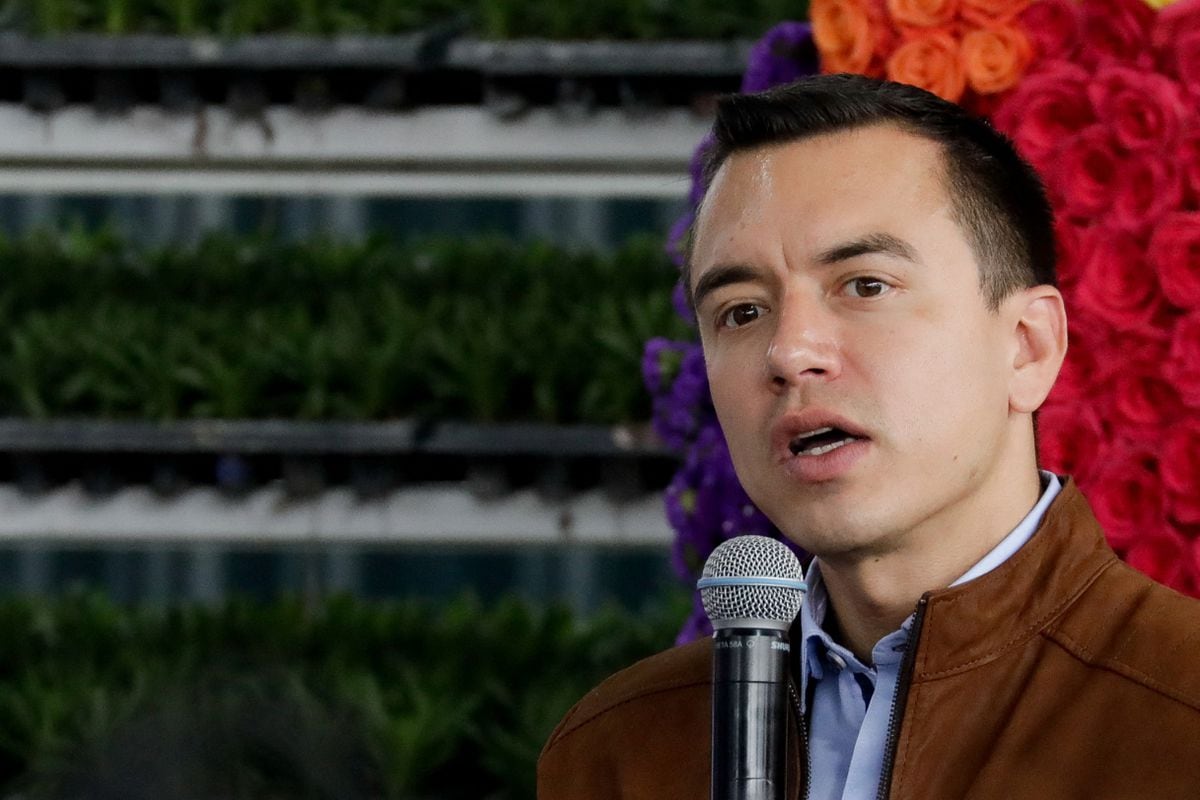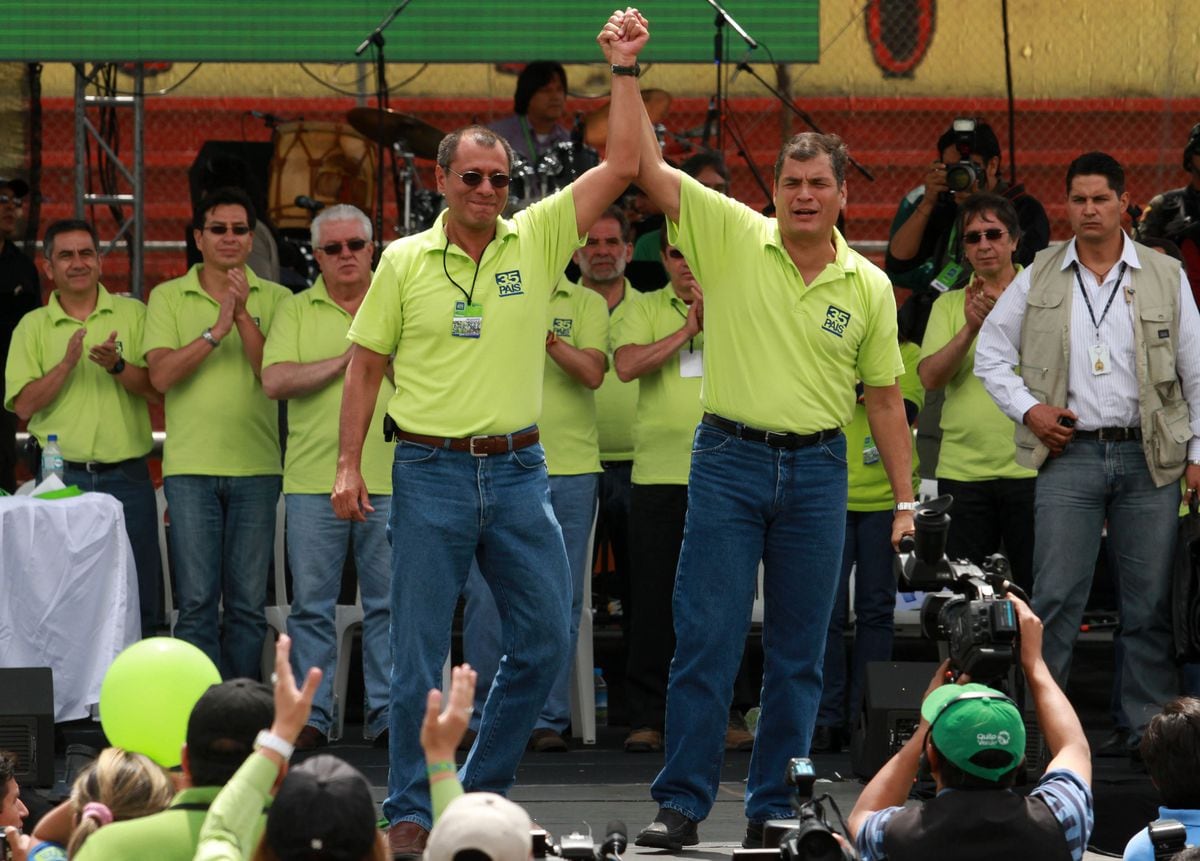Yaku Pérez: This is an unprecedented crisis 1:04
(CNN Spanish) -
Indigenous organizations and unions in Ecuador marched this Tuesday to protest against the government's economic policy and ask for fuel prices to be frozen, in the context of a progressive rise so far this year and the difficult situation economic in the country.
Roads in several Andean provinces were closed, according to the ECU 911 emergency service, while the indigenous organization Confederation of Indigenous Nationalities of the Ecuadorian Amazon (Confeniae) said that some roads in the country's Amazon region had been cut since the early morning, Reuters reported.
The Ecuadorian government spokesman, Carlos Jijón, indicated in a statement on Facebook that there were six roads closed and that they had proceeded to reopen them to restore mobility.
He added that there were 18 people arrested for trying to close roads, 10 of them in the city of Daule.
Homicides, prison riots and a state of exception: why is there a wave of violence in Ecuador?
In other areas, including the highway that connects Quito with the north of the country, sections of the highway were blocked with dirt and trees.
While the traffic in the capital was normal, although it was expected that the demonstrations of the unions, bent on the demands of the indigenous movement, would begin this Tuesday afternoon.
An indigenous woman blocks a highway linking the coast and the mountains near Zumbahua in Ecuador on October 26, 2021, before a protest against the government's economic policies.
(Credits: from RODRIGO BUENDIA / AFP via Getty Images)
Hit by a security and violence crisis, due to which a state of exception was decreed throughout the country, and the fall in economic activity in the framework of the covid-19 pandemic, Ecuador is experiencing an escalation of tensions.
advertising
But why exactly is the indigenous movement marching in Ecuador?
The rise in the price of fuel
The Confederation of Indigenous Nationalities of Ecuador (Conaie) announced this Tuesday on its Twitter account the beginning of a "progressive day of resistance and mobilization" from the early hours of this Tuesday in different parts of the country.
Leónidas Iza Salzar, president of Conaie, said on Monday that the mobilization was aimed, among other things, at requesting a "real freeze" of fuel prices, taking them to US $ 2 for gasoline and US $ 1.5 for diesel.
He was referring in this way to the price freeze - on a larger scale - announced on Friday by the president of Ecuador, Guillermo Lasso, in an attempt to contain the protests and work stoppages scheduled for this Tuesday.
Indigenous people block a highway that connects the coast and the mountains, near Zumbahua, in Ecuador.
(Credit: RODRIGO BUENDIA / AFP via Getty Images)
"I have decided that as of today the monthly increases in fuel prices will be suspended. The price of extra gasoline is set at USD 2.55 and the price of diesel is set at USD 1.90," said the president .
In Ecuador there is a system that allows the monthly increase in the price of fuels, based on the international price of oil, but the system has generated a lot of rejection in the population.
Consequently, gasoline costs have risen significantly since Lasso's predecessor, Lenín Moreno, began monthly increases in May 2020.
The tough economic situation
This Tuesday Lasso criticized the unemployment in economic activity from his Twitter account, noting that "the stoppages affect the economy of thousands of families and truncate development at the national level."
The president also promoted the hashtag #EcuadorSinParo and shared stories of Ecuadorians allegedly affected by the protests.
"Edwin is a merchant. His business is the sustenance of his home and other families. The paralysis of the country represents economic losses for him and his loved ones," he said.
Special police forces and soldiers are deployed around the Carondelet Presidential Palace, in Quito, on October 26, 2021. (Credit: CRISTINA VEGA RHOR / AFP via Getty Images)
In recent days, Lasso has held meetings with leaders of the indigenous movement who presented a list of economic measures to the government, including the freezing of fuel prices.
But sectors such as the workers' unions, teachers and Conaie had announced a mobilization to reject the government's economic proposals for Tuesday, October 26.
Faced with this, Lasso said last week that he was going to "defend Quito from those who like violence."
"If we have to grip the Constitution with force to confront the coup plotters, we will do it," he said.
Salazar listed other problems they are currently facing: a moratorium on the financial system, low prices for farm products, extractive policies and the situation of the exercise of labor and collective rights.
Ecuador's Gross Domestic Product fell 7.75%, according to World Bank data, in 2020 and in the context of the covid-19 pandemic.
Meanwhile, the national poverty index climbed to 32%, when in 2019 it stood at 25%.
Soldiers search a bus passenger for weapons at a checkpoint on the Pan-American Highway in Machachi, Ecuador, on October 26, 2021. (Credit: RODRIGO BUENDIA / AFP via Getty Images)
"An unprecedented crisis"
Indigenous leader Yaku Pérez, a former candidate for the presidency of Ecuador, told CNN on Tuesday that the country faces "an unprecedented crisis in Ecuadorian history."
"An economic, social, political, institutional crisis, and also an ethical and moral crisis. Crime in the main cities of the country and what is happening in prisons, with a historical record of murders, is the reflection of society "said Pérez, a member of the Pachakutik Plurinational Unity Movement, Conaie's political wing.
"We are in a state of exception, but no matter how much the military is armed to the teeth, as long as social inequalities continue, the gigantic social asymmetries between some who have so many and the majority who have nothing, this will not be solved" added.
Founded in 1986, CONAIE is especially remembered for the indigenous uprising of 1990 -or Levantamiento del Inti Raymi-, a series of mobilizations throughout Ecuador during the government of President Rodrigo Borja, which included the taking of the Santo Domingo church in Quito. .
With information from Ana María Cañizares and Reuters.
Natives

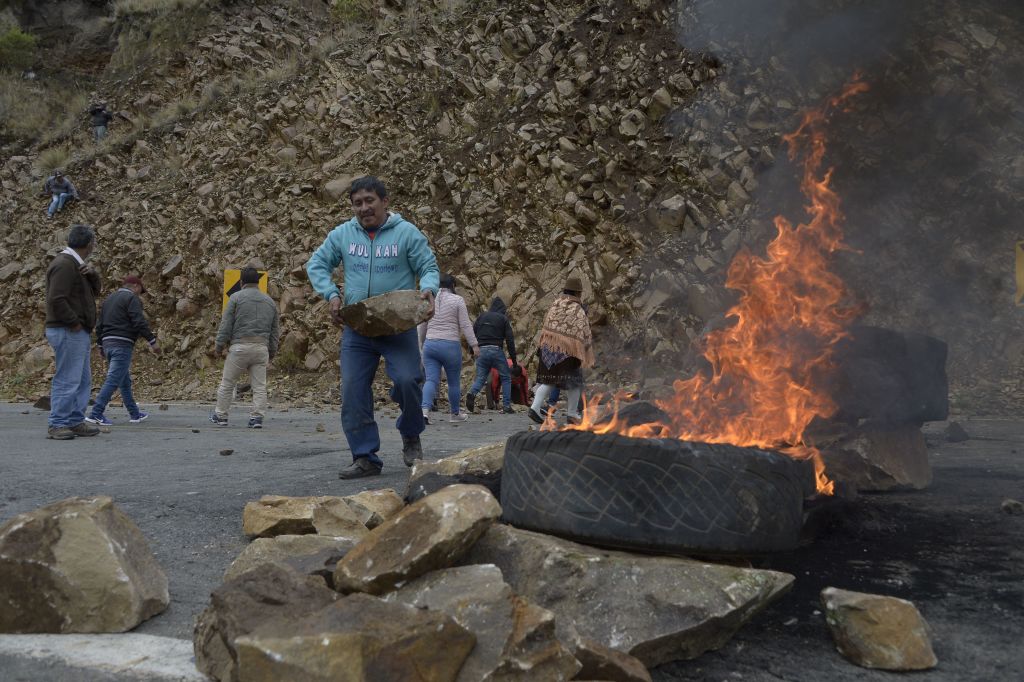
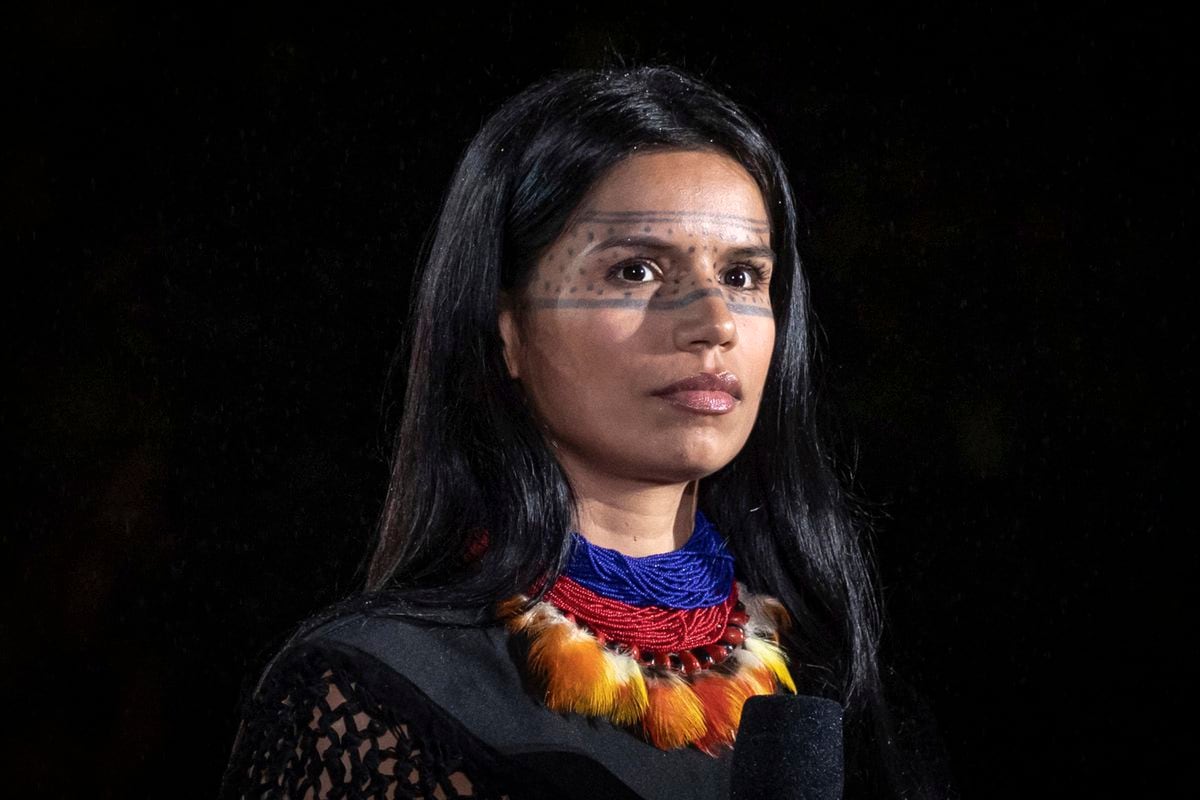

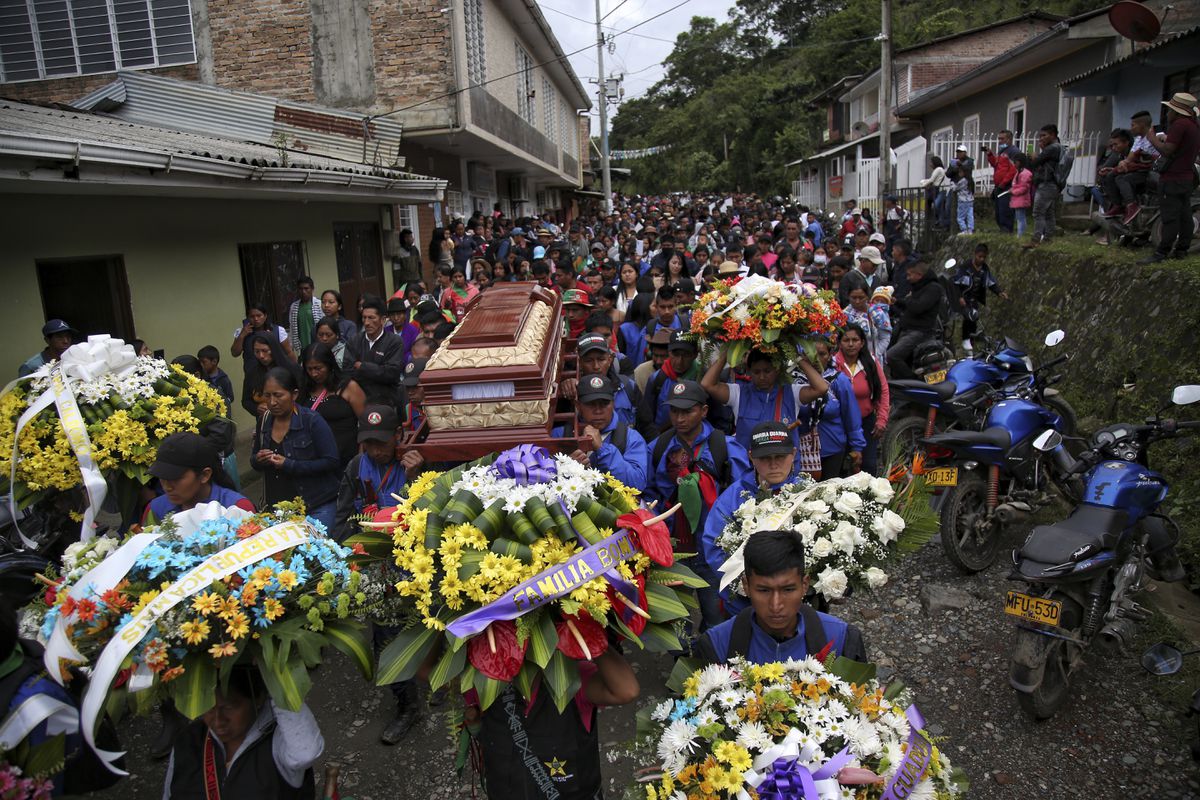
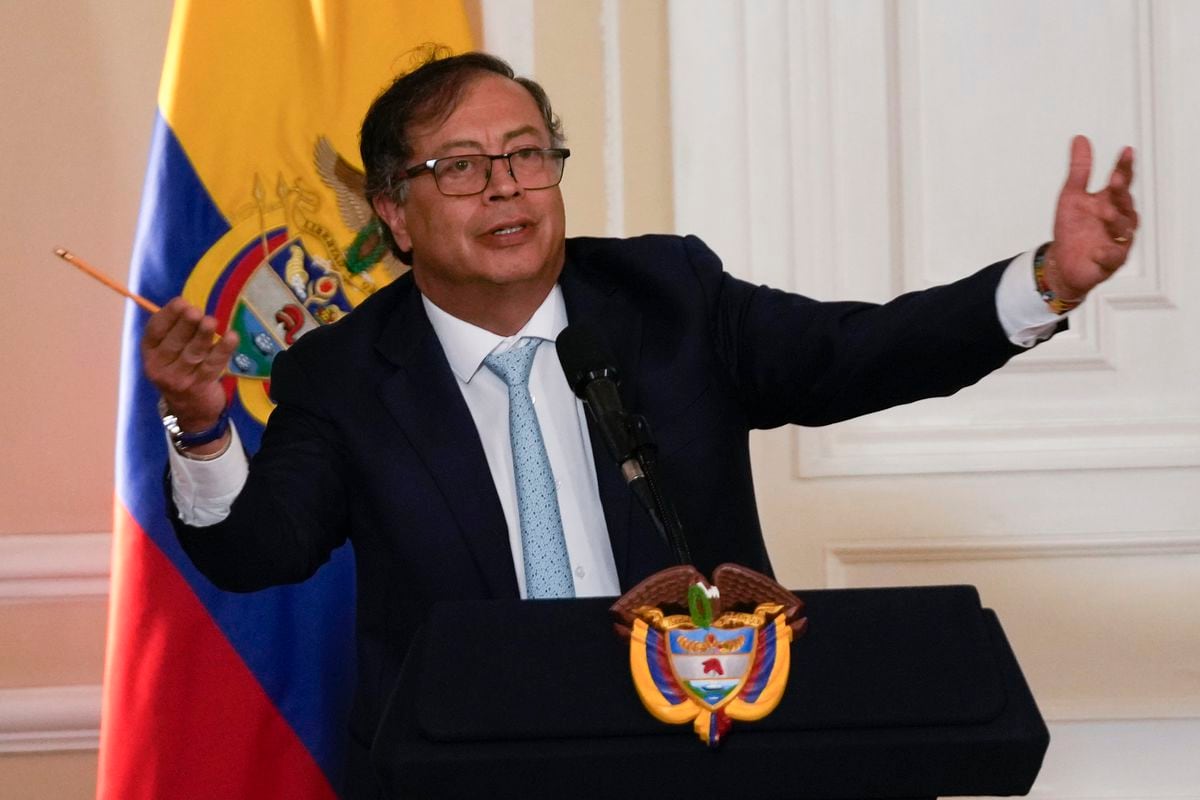
/cloudfront-eu-central-1.images.arcpublishing.com/prisa/EMYXC3EVHNEG3OJHGIQCB2IVYA.jpg)

